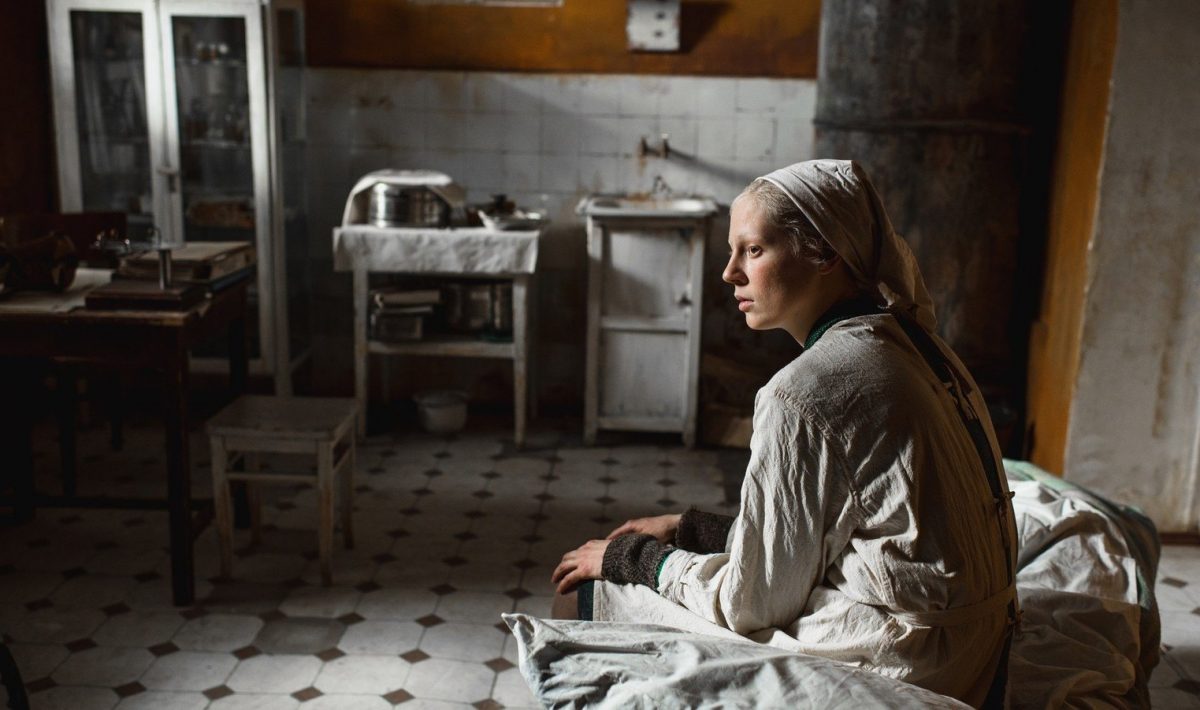Kantemir Balagow has created a film which Polish filmmakers can only envy him of. Here we have the subtle story of female friendship, living in the difficult post-war reality of 1945, facing a collective tragedy, as well as the private one, which is further complicated by the experience of fighting on the Eastern Front. Where the Polish artist would masturbate with tragedy, Balagov plays different notes – yes, the mournful notes as well, but also the warm and wise ones. Where Polish cinema would serve us another black and white sadness embedded in the times of the Polish People’s Republic, Aleksandr Sokurow’s student attracts us with images taken out from Vermeer’s works.
In Beanpole, the Russian candidate for the Academy Award, the world is drawn exactly as Dutch paintbrush masters have done it so many years ago. This is the world of ordinary women performing ordinary activities in soft light, which timidly bursts through the windows into the charming rooms of Leningrad’s tenement houses. It is no accident that the creation of Beanpole – Iya (Viktoria Miroshnichenko) will remind viewers of one of Vermeer’s most recognizable paintings – Girl with the Pearl Earring. Hardly any creator can capture the fleeting emotions contained in painting art and transform them into a film image. Balagov can.
In Beanpole’s gaze we will find the same emotions as in the gaze of a girl from the image of a Dutch master. Shyness, uncertainty, but also a kind of determination, a flash appearing in the eyes of the heroine – perhaps indicating a manifesto that will soon tell the world: I am a woman and I have my own identity.
It is the very subject that, against the background of charismatic image of the post-war Russia created by the director, is the most important for Balagov: the silent struggle of the main heroine to gain a voice, to gain identity. Beanpole suffers from bothersome epilepsy attacks. As in the book of Russian Nobel laureate, Svetlana Aleksijewicz, The Unwomanly Face of War (Beanpole is a loose adaptation of the book), these attacks are also a symbol of the difficulty of being a woman in reality, in which the only pattern available to the heroines is the masculine model. Beanpole – as the offensive nickname indicates itself – is too tall to feel as a woman.
It would seem that in a world where there is a shortage of men – those who have not returned from war, those who have been mutilated, those who are just growing up – there will be more space for being a woman. The problem is that the heroines lack the image of their own self. Sure, they are doing brilliantly for difficult conditions, but they are soldiers who have just returned from the front. The trauma of a bloody war experience also includes the trauma of being a woman – with her own desires and her own opinions. How else can you call the feeling of lost heroines and the difficult relationship between Iya and Masha?
Beanpole’s complicated condition entangles her with a sense of duty towards her friend Masha (I do not want to spoil the movie, so I will try to give you a general image). In short, one has something that the other does not have, and vice versa. And they are both connected to each other – not only by bonds of friendship, but also by a word, a promise, a vow. In the heart-hugging relationship between Iya and Masha, Balagov not only talks about how hard it was to be a woman in “those times”, but also points out that identity always arises in a relationship with another person. In this case, in the relationship between two women.
Warmly received during the Cannes festival, Beanpole is that kind of a movie which we do not have enough today. There are few artists (who would break through to the mainstream – in this case the Oscar nomination is something incredibly positive) who would approach the question of building individual movie frames filled so intricately with details. Aleksandr Sokurow can be proud that he has such a student, and the more sensitive viewer may remember Balagov’s movie when encountering one of Vermeer’s paintings.
Still from the movie – New Horizons’ press materials






